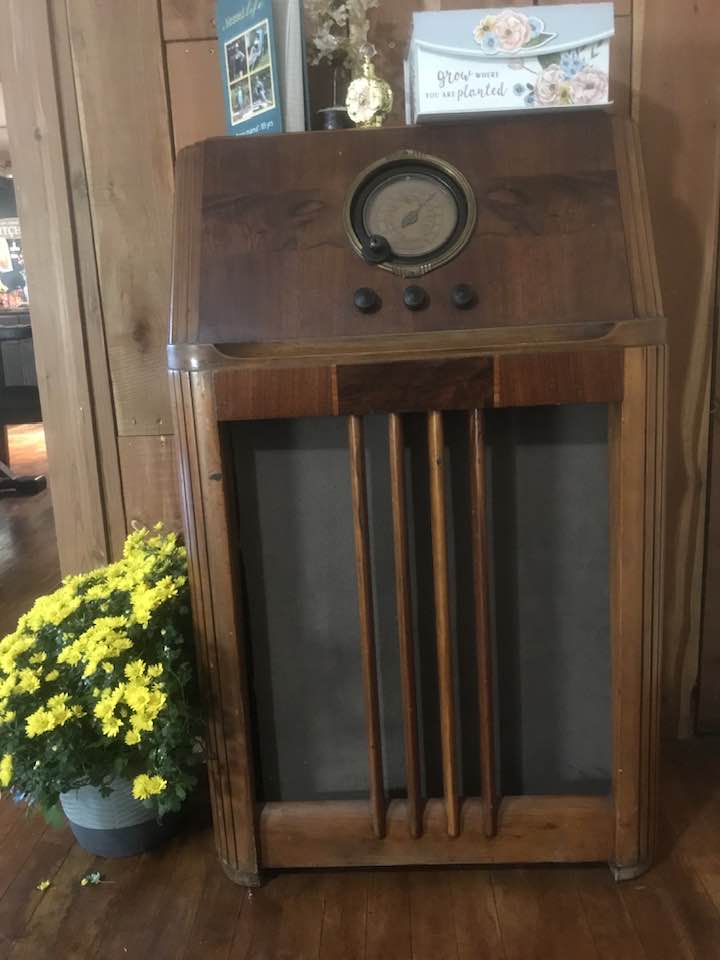By Dr. Curtis Varnell
Each night, just as we lay down to sleep, the old Zenith radio would come. Melodious sounds of the Grand Ole Opera weaved their waves through the house, whispering all is well and its time to sleep. My dad loved to listen to the radio, a technology not available when he was a child, and he often left it on until the station signed off at night. My mother listened to it during the day as she done housework. She loved to sing along with the Chuck Wagon Gang gospel music in the afternoon.
The radio, as a form of entertainment, began in San Jose, California when Charles “Doc” Herrold began sending out regular transmissions to people having receivers in the local area. The medium caught on quickly and was introduced to Pine Bluff, Arkansas in 1922. The first station was operated by the local power company and had no commercials. The technology spread rapidly, bringing news, weather, and music to the state. The Reverend Ben Bogard soon realized its potential to spread the Gospel and the fiery Missionary Baptist became one of the first big-time radio evangelist.
Most of the early stations were A.M. and the long wave-lengths allowed broadcast long distances into the hills of Arkansas. National brands began to produce battery-powered radios which allowed rural areas without electricity to receive broadcasts. My dad remembers when the first radio arrived in rural St. Louis Valley. Neighbors from all around would gather in the owner’s yard, he would crank up the volume, and everyone would enjoy the “modern” entertainment. Talk shows were the rage and two young comedians, Lum and Abner, from Mena, Arkansas began presenting local programs promoting down-home county humor. They went on to become nationally famous and even movie stars. Their comedy routine poked fun at country and hillbilly ways and many attribute Arkansas’s backwoods image to their routines. The little town I live in attributed its name of pumpkin center as being created as a part of a Lum and Abner show. The name was changed to Midway later in the 30’s to rid the community of the hillbilly image. The name changed, I am not sure the rest of us followed suit.
The radio played an important part in our American history. FDR’s fireside chats helped to calm America during the depression years. During WWII, radio was invaluable in keeping America informed about the war effort as well as assisting in drives to provide needed war materials to our troops. Entertainers used the medium to boost morale and to sale war bonds.
By the 1950’s, every small town had a radio station that carried everything from music to local sports events. Each station had a call number and lettering with K designating west of the Mississippi and W east of the Mississippi river. Some of the larger stations such as WLS erected huge towers that could broadcast across half the nation. Announcers such as Wolfman Jack became national entertainers and recognized nationwide. The Lone Ranger, the Shadow, and many westerns had their beginnings at radio shows and, as late as the 1960’s they were broadcast to a public eager for entertainment. TV, arriving in Arkansas in the 1950’s, was not as popular or as available as radio.
When I was young, there was nothing like listening to local radio. People would get on radio and sale everything from baling wire to chickens. Local announcers would pass along local news and gossip. My math teacher constantly ran the radio while we worked assignments at the end of the period. Well-liked and the brunt of local jokes, he was shocked when the local D.J. announced, “Our local math teacher has taken a secondary job as local distributor of GRIT newspaper. Rush on down to the 22 café and purchase the latest copy and help out Mr. Allen.” In spite of his protests, the announcements ran all week and someone actually placed a bundle of the newspapers in the store with a pay box containing his name.
Many of these local AM stations are no more, replaced by F.M. broadcasts and the ever more popular TV but our communities miss the togetherness and familiarity shared from having our own sources of media.






